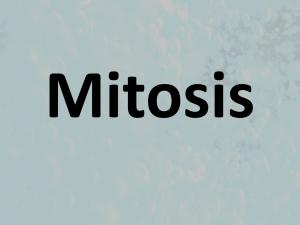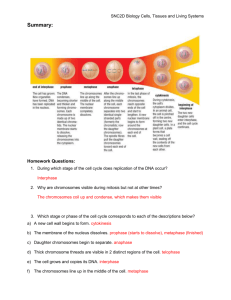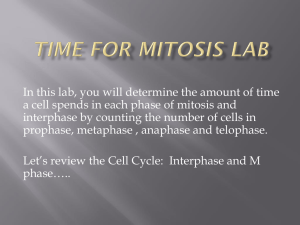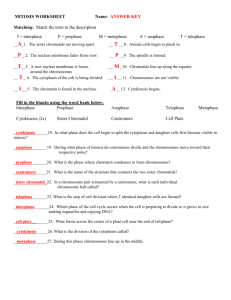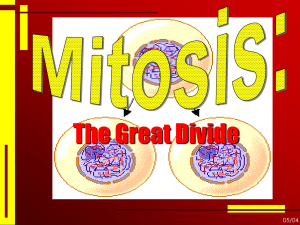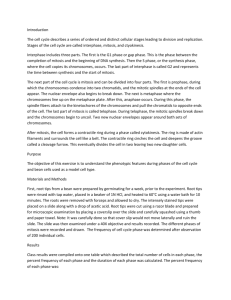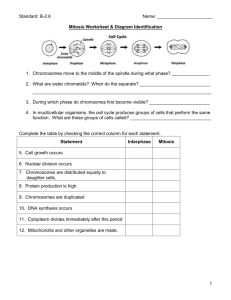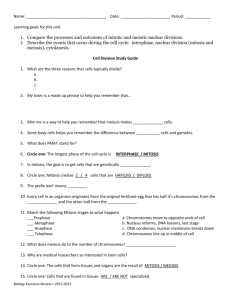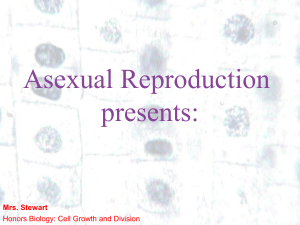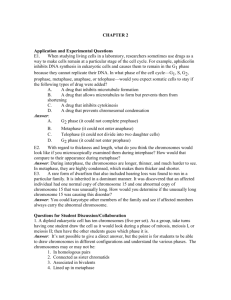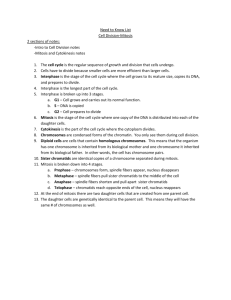Mitosis & Cell Cycle Worksheet: Honors Biology
advertisement
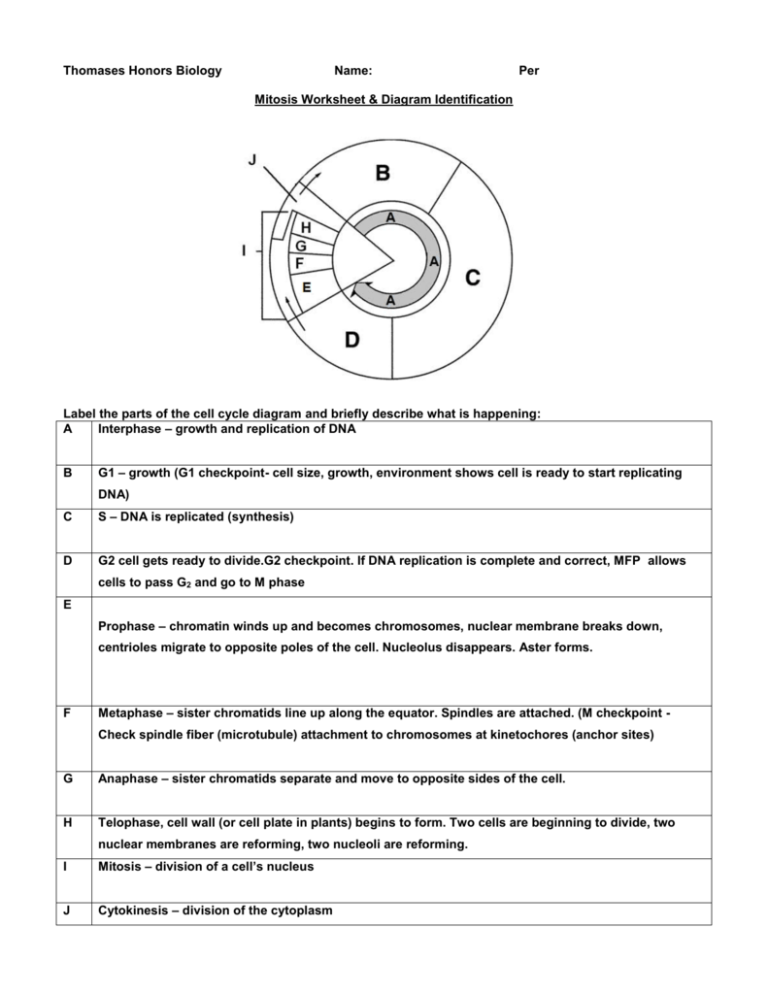
Thomases Honors Biology Name: Per Mitosis Worksheet & Diagram Identification Label the parts of the cell cycle diagram and briefly describe what is happening: A Interphase – growth and replication of DNA B G1 – growth (G1 checkpoint- cell size, growth, environment shows cell is ready to start replicating DNA) C S – DNA is replicated (synthesis) D G2 cell gets ready to divide.G2 checkpoint. If DNA replication is complete and correct, MFP allows cells to pass G2 and go to M phase E Prophase – chromatin winds up and becomes chromosomes, nuclear membrane breaks down, centrioles migrate to opposite poles of the cell. Nucleolus disappears. Aster forms. F Metaphase – sister chromatids line up along the equator. Spindles are attached. (M checkpoint Check spindle fiber (microtubule) attachment to chromosomes at kinetochores (anchor sites) G Anaphase – sister chromatids separate and move to opposite sides of the cell. H Telophase, cell wall (or cell plate in plants) begins to form. Two cells are beginning to divide, two nuclear membranes are reforming, two nucleoli are reforming. I Mitosis – division of a cell’s nucleus J Cytokinesis – division of the cytoplasm The Cell Cycle (Phases are in order) Interphase Prophase Metaphase Anaphase Telophase Interphase 1. Chromosomes move to the middle of the cell during what phase? metaphase 2. What are sister chromatids? A chromosome has made a copy of itself in S phase. These are two identical chromosomes attached by a centromere. 3. What holds the chromatids together? centromere 4. When do the sister chromatids separate? anaphase 5. During which phase do chromosomes first become visible? prophase 6. During which phase does the cleavage furrow start forming? telophase Complete the table by checking the correct column for each statement. Statement 7. Cell growth occurs Interphase Mitosis x 8. Nuclear division occurs x 9. Chromosomes are finishing moving into separate daughter cells. x 10. Protein production is high x 11. Chromosomes are duplicated x 12. DNA synthesis occurs x 13. Cytoplasm divides immediately after this period 14. Mitochondria and other organelles are made. x x The Animal Cell Cycle – Phases are out of order for questions 15 - 21 15. Which cell is in metaphase? ___C__________________________________ 16. Cells A and F show an early and late stage of the same phase of mitosis. What phase is it? ___________________prophase__________________________________ 17. In cell A, what is the structure labeled X? __centrioles________________________ 18. In cell F, what is the structure labeled Y? ____spindle fibers__________________ 19. Which cell is not in a phase of mitosis? ____D____________________ 20. A new membrane is forming in B. What is this phase called? ____telophase___________ 21. Sequence the six diagrams in order from first to last. __D A F C E B D_________________________________ 22. What is the end product of mitosis? __two identical daughter cells________________________________________ 23. If the original cell has 46 chromosomes, how can each new daughter cell also have 46 chromosomes? __________________chromosomes are replicated during S phase of interphase__________________ 24. What is the main difference between cell division in plants and animals? _animal cells form a cleavage furrow, plants form a cell plate________ 25. What is the purpose of mitosis? – growth, repair, healing, replacement of cells. 26. Differentiate internal regulatory factors and external regulatory factors.Internal factors like cyclins, regulate cell division from within the cell. External factors like space, anchorage – regulate cell division from outside the cell. 27. List 6 internal and external factors which can affect or control the rate of cell division: a. Density dependent inhibition e. cyclins b. Anchorage dependence f. MFP c. growth g. growth hormone d. Injury or sickness 28. When the rate of the cell cycle gets out of control, this happens: __cancer______ Identify which stage of mitosis each lettered plant cell is in: C . B A A. __interphase_______________ D E B. _telophase________________ C. _prophase_______________ D. ___metaphase______ E. ____anaphase_____________
